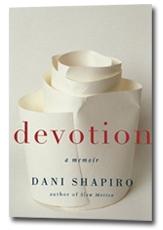“Aren’t we all just waiting for bad news?” advice columnist Carolyn Hax wrote in 2009. She was responding to a reader who had asked for advice about waiting for a loved one’s medical test results. Her question – right there in the morning paper beside the daily TV schedule and across from Arlo and Janis and the Peanuts gang– struck me as profound. I clipped the column and have a poem in the works using that quote.
I know a few folks – like my dear Mama – who are most definitely not waiting on bad news. Mama could have major, risky surgery scheduled tomorrow and still sleep like a baby tonight. She says she asks herself, “Is this (thing I’m worried about) anything I can change?” If it is, then she gets up and does something about it. If it’s not, she puts it in God’s hands.
 But if you’re anything like me, even the remote possibility of bad news has kept you awake – or awakened you at two a.m. – on more than one night. It’s haunted your work day; it’s nagged at the back of your mind as you tried to have a normal conversation with a colleague, a friend, a spouse. It’s made your heart race and your stomach knot. Maybe you’ve prayed; maybe you’ve meditated; maybe you’ve medicated. Or maybe, if you’re like Dani Shapiro, you’ve delved deeply and bravely into questioning just who or what it is you might pray to; just how you’ve come to believe what you believe; and just what you can do to achieve a sense of personal peace.
But if you’re anything like me, even the remote possibility of bad news has kept you awake – or awakened you at two a.m. – on more than one night. It’s haunted your work day; it’s nagged at the back of your mind as you tried to have a normal conversation with a colleague, a friend, a spouse. It’s made your heart race and your stomach knot. Maybe you’ve prayed; maybe you’ve meditated; maybe you’ve medicated. Or maybe, if you’re like Dani Shapiro, you’ve delved deeply and bravely into questioning just who or what it is you might pray to; just how you’ve come to believe what you believe; and just what you can do to achieve a sense of personal peace.
“There’s nothing trickier than trying to talk about personal belief,” Dani writes in her book Devotion. But she negotiates the tricky with eloquence: This book is a veritable weaving of personal belief, the threads of which are numerous and diverse. There’s the long but frayed thread of her Jewish heritage. The weak threads of life’s fragility: living in sight of the World Trade Center collapse; her infant son’s rare and life-threatening seizure disorder; her lifelong conflict with her mother; her father’s early death. The plentiful but short threads of the mundane: laundry and email; dinner with friends; a boy on his bike; a basement full of “dead people’s stuff;” a quiet, pastoral, family life in Connecticut; platitudes like “God doesn’t give us more than we can handle.” And then the shiny threads of grace: the synchronicity of meeting the author of a favorite yoga book; practicing metta meditation; studying the Torah with an esteemed rabbi; the discovery that any place can be a sanctuary.
In less skilled hands, these threads – indisputably of different color and weight and texture – would be a tangle. But Dani works them into a collection of 102 short essays that results in a beautiful, intricate, supple cloth of personal faith.
Like the best books on faith, this isn’t a book that tells you what to believe. It’s a book that shows how one person found her way, a way so honestly and intimately described that it commands empathy and respect from believers in all faiths – and in no faith at all. It’s a book that makes even this Southern girl with Protestant roots – whose previous knowledge of Jewish terms was pretty much limited to Hanukkah, seder, and yarmulke – nod her head in recognition.
If you’re a person who “startles easily,” who knows the anxiety of waiting for bad news, who feels lonely even when she’s not alone, who wonders “What’s the reason?” Dani’s journey will surely resonate, and maybe inspire your own next step.

Thankfully, I’ve learned not to be like that and think I’m probably wired a little counter to that. But I love that Life has presented me ample challenges to learn to Trust. Believe. Live in the Now. I like this review and will Tweet. Came over here from Kathy Rhodes’ Facebook page.
Hi, Leisa, and thanks for stopping by! I agree, some of us seem to be more wired to worry than others, just as some of us are much more introspective than others. This book would appeal to both personality types, I think.
I love your outlook that life gives us challenges as lessons in trust!